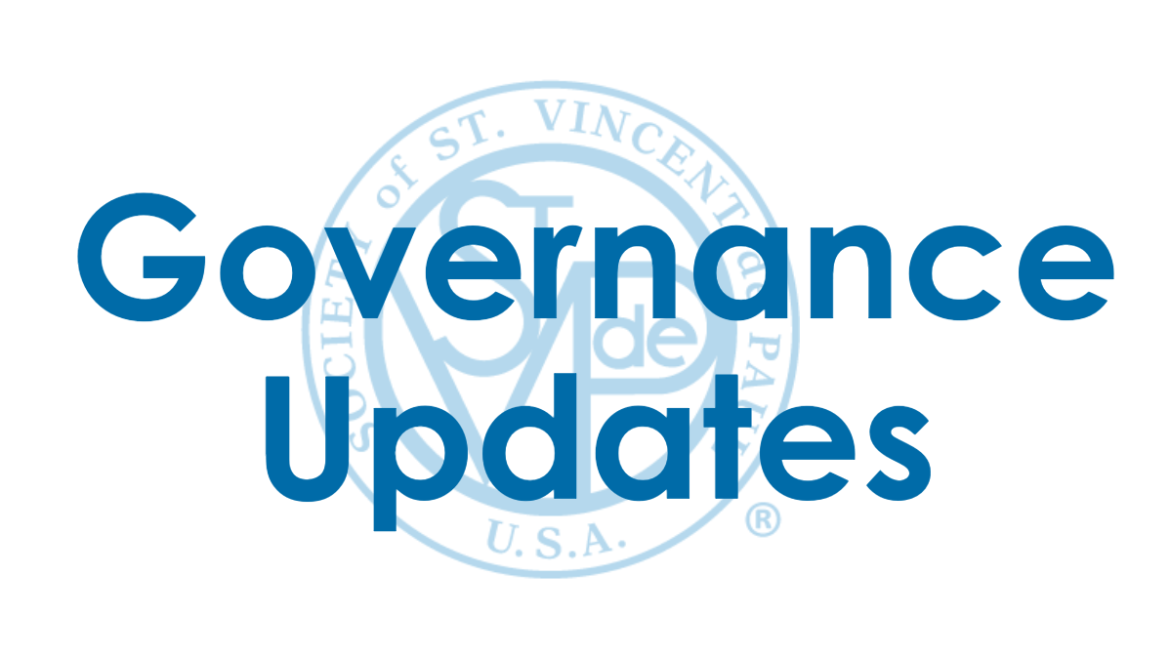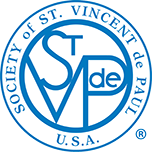(Excerpted from Vincentian Life: Conference)
New members have a real challenge before them when they join a Conference. There is a tremendous amount of “stuff” that they have to learn: who the other members are, principles and history of the Society, spirituality, how to do home visits, where everything is, what and when to do something, and what and when not to. It can all be very confusing. Actually, it can all be confusing to members who have been around for a while as well. That is why it is important to have a set of Conference guidelines.
WRITTEN GUIDELINES
Have you ever heard the expressions that’s the way we do things, we’ve always done it this way, we can’t do that, or it’s just not done that way? That is one of the most frustrating things about being a member – especially a new one. Not knowing what to do and/or being criticized for doing something the wrong way can be very humiliating. It would all be much simpler if all those ways and things were written down somewhere.
They can be. They should be. And, the most-organized and well-run Conferences have a set of written guidelines that are available to all members. They are not just a set of rules that have been accumulated over the years, they are a formal set of guidelines that have been defined, organized and presented in a form that is convenient to use, easy to understand and readily accessible to all members.
Without the written guidelines, the statements above will continue to flow, and new members will continue to scratch their heads – some even leaving the Conference. Without the written guidelines, people will give their own interpretation of what is the proper way because that’s the way they remember being taught.
ORGANIZING THE GUIDELINES
Before preparing a set of guidelines, the Conference members should attend an Ozanam Orientation. This is important since it gives members an understanding of what is important and what should be stressed in our ministry. Without this basic understanding, guidelines may be developed simply because they sound good or logical. The guidelines we develop for a Conference should be reflective of our call to ministry.
Preparing a set of guidelines is not that difficult. The Conference should establish a committee of about three people who will take on the task of creating the first draft of the guidelines. They will get together a few times and map out the guidelines which will be reviewed, updated and hopefully approved by the Conference for their use. Your Conference may also get a copy of the guidelines of a neighboring Conference. Do NOT simply adopt someone else’s guidelines as your own. You should make sure your guidelines fit the needs of your Conference and those in need in your parish community.
Look to the other chapters in this book and pay close attention to the topics of food, rent, utilities, home visits, etc. Then come to a consensus among the committee members as to what a reasonable expectation should be in dealing with those types of service. Members of the Conference may have already dealt with these issues and some unwritten guidelines or rules may already exist.
“Guidelines” should be just what the word means. These are not firm rules that have to have the “i”s dotted and “t”s crossed. These are possible ways to approach fulfilling the requests for help. The guidelines should provide possible solutions. One thing is extremely important to remember: Guidelines are intended to define how people in need can be served; they are not intended to define how people are to be turned away.
When circumstances dictate, the members can vote to override a guideline for a particular case.
Once the draft is compiled, copies should be presented to all members for their review, correction and final approval. This process may take two or three meetings to complete. This review and approval process is a Conference process and should not be left to only a few people. Once consensus has been reached by the Conference as a whole, the document should be formally published and each member should be given a copy. The Secretary will be given the original to keep with the Conference records. All new members should receive a copy of the guidelines when they join the Conference.
REVIEW/UPDATE/APPROVE
At the beginning of the fiscal year (October or November), the Conference guidelines should be reviewed by the members of the Conference. They should be evaluated to see if they are still appropriate for the conditions that currently exist. The same process that was followed to review and approve the initial set of guidelines should also be used to review, update and approve the new guidelines. Once again, all members should be given copies of the guidelines.
SUMMARY
Conference guidelines are one of the keys to having an organized and well-run Conference. None of the guidelines should contradict the Rule, Manual or Bylaws or any local, state or federal tax laws. None of the guidelines should in any way indicate who to serve or how not to serve someone in need. If they are properly prepared, the guidelines will help Conference members serve those in need in the best way possible.




